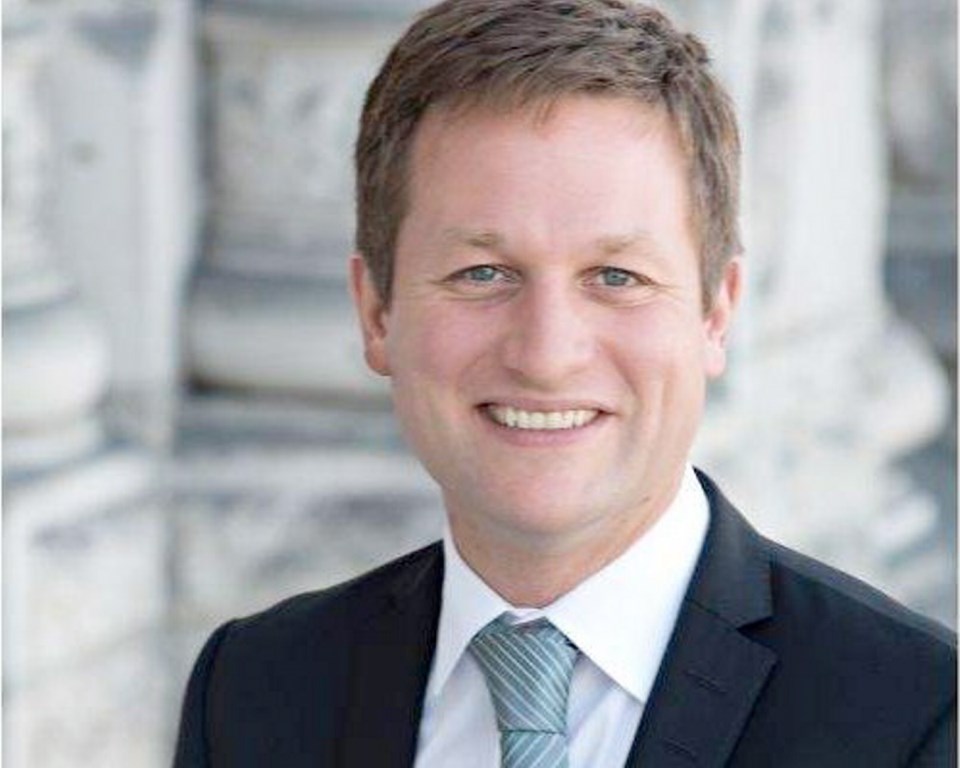Last month, Education Minister Rob Fleming proposed that the new B.C. education curriculum is necessary to prepare students for an unknown world, and for jobs that haven’t been invented yet.
“Kindergarten students today will graduate into a world that is vastly different from the one we know now. In order for them to be successful, we need to teach them to never stop learning, embrace technology and develop skills that are valuable to every career — communication, collaboration and critical thinking.”
This seems to be the same, tired script that every politician, bureaucrat, education partner, school administrator and district superintendent reads from. But what is interesting is that we now have the minister himself pushing the product that he’s in charge of selling.
It sounds a tad desperate.
Provincial exams are a thing of the past. They will be replaced by a literacy and numeracy assessment — more on that later. Grades are no longer mandatory until Grade 10. The English 12 provincial exam, our only standardized assessment that’s left, is receiving a massive overhaul, which means it will no longer measure anything significant on how our education system is performing.
And the Education Ministry is congratulating itself on “consulting” with all major stakeholders in defence of implementing these changes.
In response, a group of dedicated and knowledgeable teachers is speaking out against the introduction of the literacy assessment and cancellation of the provincial English exam. Experience and evidence have determined these exams provide an even playing field for all students — regardless of socioeconomic background or geography — and they keep both students and teachers accountable to meet an agreed-upon set of skills that is deemed reflective of an educated English student.
These changes will, in their informed view, wreak havoc and chaos on students once they attempt the transition from high school to post-secondary. Their letter has been distributed provincewide, inviting other teachers to pledge their support if they wish.
As for the response from the university? Entrance exams might be a new requirement for admission because, in their words, exams are still the single best indicator of academic achievement for students, something our education leaders have now deemed irrelevant.
All that the ministry has done is shift the burden of student accountability onto post-secondary institutions, driving up student anxiety and dumbing down learning standards even further.
As for the new math assessment, it replaces the provincial Grade 10 math exam, yet it does not count toward a student’s grade. The exam must be written by the time they graduate, and students have three chances to write it. It will contain content learned in Grade 8-10, but students have the option to write it any time between Grade 10 and 12.
So this means students in Grade 12 can write the assessment up to three times, which is based on content for kids four years younger. The marking criteria are so broad that the assigned mark reflects a wide range of skills. According to a teacher who took a course on the new numeracy assessment, a student can get the top mark (4), without getting the correct answer.
You couldn’t make this stuff up if you tried, but according to Fleming, it’s a win for everyone: “We are working with our partners on a new graduation program that will give students the best possible chance for future success. We’re also taking a hard look at our provincial assessments to make sure they support the new curriculum, while maintaining high, measurable standards that show us how we’re doing and drive continuous improvement.”
But here’s the rub. Regular classroom teachers are unable to speak publicly about their concerns, and when they do, they’re either ignored or reprimanded. Why do those who see the devastating consequences of convoluted changes to education policy first-hand, have to be silenced or ignored, while gurus promoting edufads run amok, being wooed at district-sponsored workshops and professional-development sessions?
With all this talk about promoting critical thinking, why aren’t our leaders doing exactly that? For someone who talks about inclusion and transparency, why is our education minister so averse to responding to those who have expressed their concerns? I’m still waiting to hear back from his office.
Parents, we need to hear from you. Your kids need you to fight for them. It’s not right that 30 per cent of our kids are in tutoring centres by Grade 3. Our publicly funded system needs to be held to account.
And if you’re a teacher wanting to show your support for this latest initiative, send me an email at [email protected]. Let’s stop this nonsense before it’s too late.
Tara Houle is a parent advocate who lives in North Saanich and is founder of WISE Math B.C.



